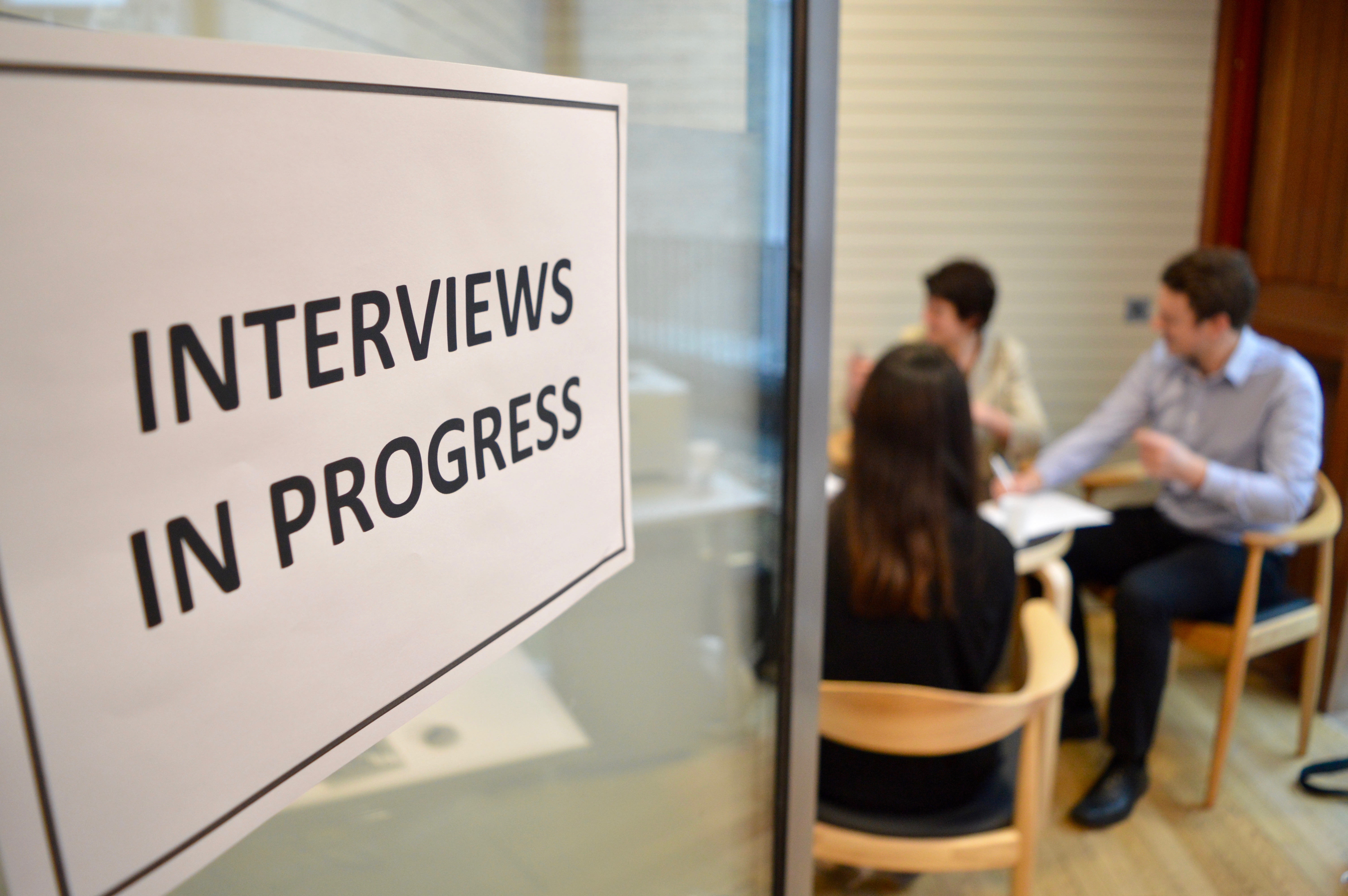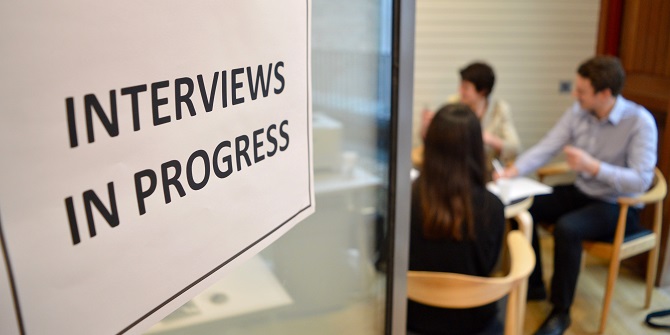
Now is a particularly busy time for job and internship interviews and to support you, here LSE careers consultant Viki Chinn reflects on her experience of interviews including why some students get it ‘wrong’ and how to ensure positive outcomes instead:
1. Failing to do your homework
There is a simple equation for interview preparation – the better you prepare, the more likely you are to get hired! Find out as much as you can about the organisation. Don’t just read their website as that’s the bare minimum the employer expects you to have done. Research the industry and market intelligence about the organisation, and find out as much about the role as possible. Check out if they have been on the news recently (though if negative press you may be wise to avoid raising that at interview!), look at pages and groups on LinkedIn and best of all, if you can, make contact with people who already work there and ask them about both the role and the organisation.
2. Not looking the part
Have you dry cleaned your suit, polished your shoes and brushed your hair? How professional you look shows how seriously you are taking the interview. Read our blog with suggestions for interview attire if you’re not sure what to wear.
3. Being too nervous
This is a tough one because when you really want a job, it can be hard to control your nerves. The best advice goes back to preparation – if you have thought about and practised your answers, done plenty of research, had a good night’s sleep and planned your journey in advance, it will help enormously. Recruiters like confident candidates so try to control your nerves as much as possible. Before going in to an interview spend a moment imagining yourself getting the ‘phone call telling you that you have got the job and feel the excitement build up in your stomach! Also, imagine what you will buy yourself with your first pay cheque. This will lift your spirits and you will go into the interview feeling far more positive.
4. Failing to work out why you were shortlisted
Hundreds of candidates apply for jobs and only a fraction make it to the shortlist, so think about why the employer liked your CV or application and build your answers around this. Something caught their eye – work it out and capitalise on it. Remember that by studying the job description, you’ll understand what the organisation is looking for and be able to match your strengths to that.
5. No answer to the most common question – ‘Why do you want to work for us?’
It sounds like a simple question but it’s one that many people find most difficult to answer. The best answer is the most genuine answer. Don’t give bland generic statements such as ‘it’s a top company’, ‘great brand’, ‘biggest player in the market’ etc. Be specific – think in detail about what makes this organisation unique and why that’s important to you. Let your answer demonstrate how much you know about the organisation and why you really want to work for them.
6. Underestimating the importance of body language and rapport
Body language and rapport are often more important than the content of your answers. Employers tend to hire people they like and being liked is strongly linked with positive body language, such as expressing your enthusiasm and passion through your facial expression, tone of voice, use of hands and body posture. It also helps to use language that’s similar to the interviewers, as it demonstrates your “fit” with the organisational culture. Smile and give a good firm handshake when you meet the interviewers and when you leave because first and parting impressions stand out in people’s memories.
7. Not selling yourself effectively
It’s a ‘buyer’s market’ and there are many suitable candidates for every job. So what makes you different? What are your features, benefits and advantages? What can you offer the organisation? Think like a salesperson – with you as the product! Many people feel embarrassed or shy when trying to answer this question – don’t, it’s your chance to shine. If you don’t sell yourself well you’ll lose out to someone else who has. You won’t come across as arrogant as long as you back up your claims effectively with examples of where you have demonstrated the trait you are talking about.
8. Not understanding how to answer competency questions
Competency questions are the most common questions asked at interviews. The best way to answer them is to provide evidence and facts which demonstrate you have the skills the organisation is looking for. Be aware that there are many competencies and the best way to prepare your answers is to create a spreadsheet, with your experience categorised into varied examples for each competency. Always use the STAR (situation, task, action, result) formula to ensure your answers are concise and relevant and make sure you focus on what you specifically did rather than just talking about group activity throughout your example.
9. Asking poor questions at the end
Interviewers love great questions! In a good line-up of candidates, the one who asked the best questions will be have a greater chance of being hired. Ask questions you really want to know that relate to the job you’ll be doing or your personal development in the role, and when thinking about your questions before the interview ask yourself: ‘Do I really care?’ If the answer is no you shouldn’t be asking that question.
10. Not thanking the recruiter after the interview
Emailing after the interview to express your desire to work for the organisation and thanking them for spending time with you is polite and helps show your professionalism and enthusiasm.
If you need any further help, book a one-to-one practice interview with an LSE careers consultant.
Good luck!





